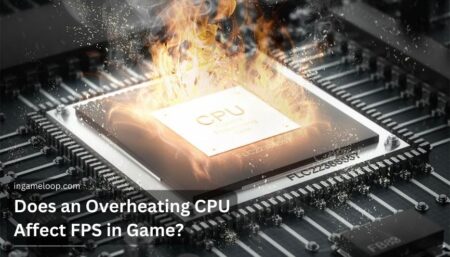
Does an Overheating CPU Affect FPS in Game? 2024
Before heading deeper into the topic, one should know what FPS...
InGameLoop relies on readers. We may earn commissions when you purchase through our links. Check Affiliate Disclosure
The CPU, or central processing unit, is the brains of a computer system, responsible for carrying out instructions and performing calculations. Modern CPUs consist of a chip with billions of tiny transistors etched onto its surface. The CPU chip plugs into the motherboard socket and connects to the rest of the computer’s components. CPUs contain cores, with higher core counts equating to more parallel processing power. Cores have caches like L1, L2, and L3 to store frequently used data for faster access.
The clock speed, measured in gigahertz, determines how many operations a CPU can perform per second. Faster clock speeds result in improved performance. CPUs utilize instruction sets like x86 and ARM to understand and execute software commands. Leading manufacturers like Intel and AMD compete to produce newer CPU generations with faster speeds, more cores, and improved nanometer fabrication.
Enthusiast CPUs can be overclocked beyond factory speeds. However, increased clock rates produce more heat, requiring robust cooling solutions. With their role as the central processor, the CPU profoundly impacts overall system performance. Choosing the right CPU is important for building systems capable of handling intensive workloads.